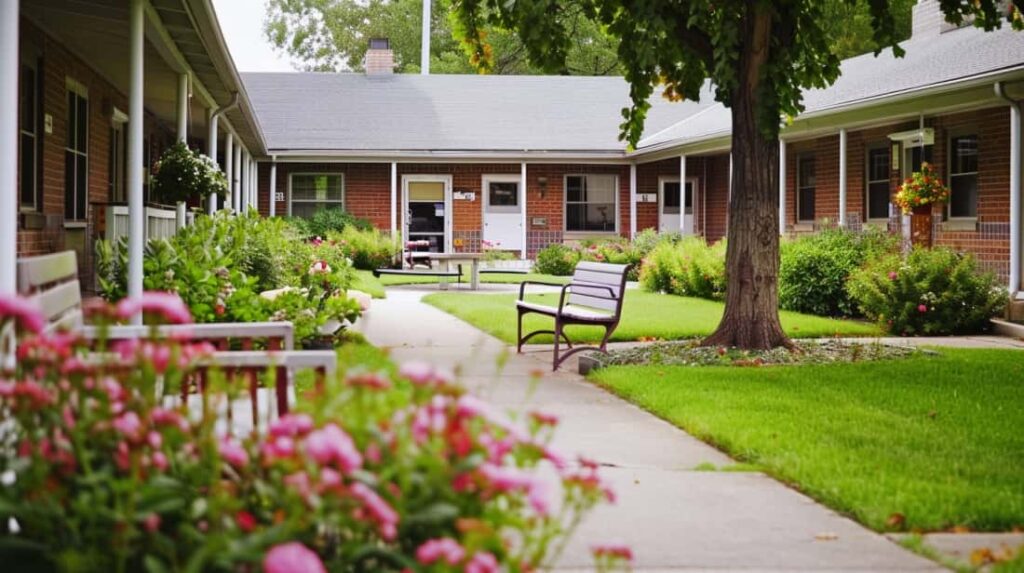Dementia Care
Understanding Dementia: Why Sleeping a Lot is Common
Yearning to uncover the mysteries behind why individuals with dementia sleep a lot? Discover the surprising reasons that lie behind this common behavior.

Have you ever wondered why individuals with dementia tend to sleep excessively?
While it may appear excessive, there are valid reasons behind this behavior that we need to explore further.
Understanding the connection between dementia and sleeping patterns can provide valuable insights into how we can better support those affected by this condition.
Let's unravel the complexities of dementia-related sleep disturbances and discover practical strategies to help improve the quality of life for both patients and caregivers.
Reasons for Excessive Dementia Sleep
Experiencing excessive sleep in dementia can often be attributed to factors such as brain damage and increased weakness. As dementia progresses, simple tasks become more tiring for patients, leading to increased daytime sleep. This can be a result of the brain's reduced ability to regulate sleep-wake cycles due to damage.
Moreover, the quality of sleep deteriorates with age and dementia, impacting overall brain health. Changes in sleep behavior, such as increased daytime napping, can vary depending on the stage of dementia. These alterations not only affect the quantity of sleep but also the restorative nature of it, influencing the overall well-being of dementia patients.
Understanding the relationship between brain damage, increased weakness, and sleep patterns is crucial in providing effective care for individuals with dementia. By addressing these factors, we can strive to improve the quality of life for those navigating the challenges of age and dementia.
Impact of Dementia on Sleep Patterns

As dementia progresses, its impact on sleep patterns becomes increasingly pronounced, affecting both the quantity and quality of rest individuals with dementia experience. People with dementia often find themselves sleeping excessively during the day due to the brain damage caused by the disease. This increased daytime sleep is a common symptom of disease progression and can lead to disruptions in the nighttime sleep cycle as well. Changes in sleep behavior are prevalent in individuals with dementia, and the quality of sleep tends to deteriorate with age and the advancement of the disease, which can further impact overall brain health.
To help stabilize sleep patterns in individuals with dementia, establishing a strict daytime routine is crucial. This routine can assist in promoting better sleep habits and potentially improve the quality of rest experienced by those with dementia. Understanding the impact of dementia on sleep patterns is essential for providing compassionate care and support to individuals affected by this challenging condition.
Managing Dementia-Related Sleep Changes
In managing dementia-related sleep changes, establishing a structured daytime routine is essential to support individuals affected by the condition. Here are some key strategies to consider:
- Consistent Schedule: Maintaining regular sleep and wake times can help regulate the sleep-wake cycle, reducing instances of excessive daytime sleepiness.
- Physical Activity: Encouraging light exercise during the day can promote better quality of sleep at night, benefiting both brain health and overall well-being.
- Mindful Environment: Creating a calming bedtime routine and ensuring the sleep environment is comfortable and conducive to rest can aid in managing sundowning and confusion during nighttime hours.
- Monitoring Changes: Keeping track of any shifts in sleep patterns and discussing them with healthcare providers can offer insights into disease progression and prompt adjustments to the care plan.
Tips for Caregivers of Dementia Patients

Consistently providing compassionate care and support to individuals with dementia is crucial for caregivers in maintaining their overall well-being and quality of life.
When caring for dementia patients, it's important to establish a regular routine to help regulate their sleep patterns. Engaging them in light exercises and activities during the day can promote better sleep at night.
Creating a calm and soothing environment conducive to sleep is beneficial for individuals with dementia. Caregivers should monitor and address any discomfort or pain that may disrupt the sleep of dementia patients promptly.
Seeking advice from healthcare providers on optimizing sleep hygiene can also help improve the quality of sleep for those with dementia.
Improving Quality of Life for Individuals With Dementia
Establishing a regular routine tailored to the needs of individuals with dementia is key to enhancing their overall quality of life.
- Maintain a Consistent Daily Routine: Consistency in daily activities like mealtimes, exercise, and bedtime can help regulate sleep patterns and provide a sense of comfort and security for individuals with dementia.
- Incorporate Light Exercises and Stimulating Activities: Engaging in gentle exercises and mentally stimulating activities throughout the day can promote better sleep at night and contribute to overall well-being.
- Create a Calming Sleep Environment: Ensuring the sleep environment is quiet, dark, and comfortable can enhance the quality of sleep for individuals with dementia, reducing disturbances during the night.
- Address Discomfort and Pain: Monitoring for any signs of discomfort or pain that may interfere with sleep is crucial. Proper pain management and addressing physical discomfort promptly can significantly improve sleep quality.
Seeking guidance from healthcare providers on optimizing sleep hygiene practices tailored to individuals with dementia can further enhance their quality of life. By implementing these strategies, caregivers can help create a supportive environment that promotes better sleep and overall well-being for those with dementia.
Frequently Asked Questions
Should You Let a Dementia Patient Sleep All Day?
We believe it's essential to consider the individual's well-being when addressing this issue.
Allowing excessive daytime sleeping in dementia patients can lead to health complications. It's crucial to monitor sleeping patterns to ensure their physical and emotional health.
Encouraging a balanced routine with appropriate rest and activities is vital for their overall wellness.
Consulting with healthcare professionals for personalized recommendations can help in providing the best care for dementia patients.
What Are Signs That Dementia Is Getting Worse?
As dementia progresses, signs of worsening may include:
- Increased daytime sleeping
- Difficulty with day-night confusion
- Nighttime awakenings
- Evening agitation (sundowning)
- Pronounced memory loss affecting daily tasks
- Behavioral changes like irritability or withdrawal
These indicators can suggest a decline in cognitive function. It's essential to monitor these symptoms and seek professional guidance to provide the best care for individuals with dementia.
How Long Does the Final Stage of Dementia Last?
In our experience, the final stage of dementia can vary in duration, lasting from a few weeks to several years, depending on an individual's health and specific condition. It's a challenging time that may bring rapid cognitive and physical decline, requiring round-the-clock care.
Symptoms like profound memory loss and difficulty communicating become more pronounced. Hospice care is often recommended to ensure comfort and quality of life during this stage.
At What Stage Do Alzheimer's Patients Sleep a Lot?
At later stages of Alzheimer's, patients often experience increased daytime sleep due to brain damage and fatigue. As the disease progresses, simple tasks become more tiring, leading to excessive sleeping. Establishing a strict daytime routine can help stabilize sleep patterns.
Changes in sleep behavior, such as daytime sleeping and nighttime restlessness, can vary based on the stage of Alzheimer's. Understanding these patterns is crucial for providing the best care for our loved ones.
Conclusion
In conclusion, it's important to understand that excessive sleeping in dementia patients is a common and challenging symptom of the disease. While it may be frustrating at times, it's crucial to remember that these individuals are facing significant cognitive and physical challenges.
By implementing strategies to manage sleep patterns and providing a supportive environment, caregivers can help improve the quality of life for their loved ones with dementia. Together, we can navigate through these difficulties with patience and compassion.
Albert brings a wealth of knowledge and expertise to our writing team. With a background in caregiving and a deep understanding of the challenges faced by caregivers, Albert’s writing resonates with authenticity and empathy. He is committed to delivering high-quality content that empowers and supports caregivers on their journey.
Dementia Care
Assisted Living Dementia Care: A Comprehensive Guide for Families

Assisted living and memory care facilities provide safe and secure environments for older adults with dementia, offering a combination of housing, personal care, and medical services. Designed to meet the varying care needs of individuals at various stages of dementia, these communities focus on enhancing quality of life. They establish environments that aim to minimize confusion and empower residents to maintain their independence.
The decision to move a loved one into assisted living or memory care is a significant one, fraught with emotional and practical challenges. Understanding the care needed and the services these communities provide is the first step in making an informed choice. Families must recognize the signs that indicate it’s time to consider assisted living, including changes in behavior, safety concerns, and the increasing difficulty of managing daily tasks.

Assisted living and memory care communities offer specialized programs and therapies to support cognitive health and provide sensory stimulation. From music therapy to arts and crafts, these activities are tailored to meet the needs and abilities of seniors with memory issues. By engaging residents in these therapeutic activities, communities aim to slow cognitive decline and improve the overall well-being of their residents.
Choosing the right community involves weighing factors such as the level of care provided, the cost, and the facility’s amenities. Families must consider both the current and future needs of their loved one, ensuring that the community can adapt to changing care requirements. With the right support and resources, families can navigate the journey of dementia care with confidence, knowing their loved one is in good hands.

Understanding Dementia Care in Assisted Living
Dementia care in assisted living communities focuses on supporting residents through various stages of dementia. Staff training is geared towards understanding cognitive decline and providing care that addresses the unique needs of seniors with memory issues. From ensuring safety to offering music therapy, these communities strive to enhance cognitive abilities and minimize confusion. The goal is to create a supportive environment that respects each loved one’s individuality and promotes their well-being.
The Basics of Assisted Living and Memory Care
Assisted living and memory care communities serve as a cornerstone for families navigating the challenges of dementia. They offer a helping hand to residents who need assistance with daily activities while maintaining a focus on memory care. Memory care neighborhoods within these communities are designed to cater to individuals with various forms of dementia, providing a secure and supportive environment that fosters a sense of normalcy and well-being.
Safety and Security Measures
Assisted living communities prioritize the safety and security of seniors with memory issues. They implement measures to minimize confusion and ensure residents’ well-being. This includes controlled entrances and exits to prevent wandering, a common concern among those with dementia. The layout and design of these communities are carefully considered to create a secure environment that promotes independence while safeguarding residents.

Additionally, these communities are equipped with emergency response systems and staff trained to respond to the unique needs of seniors with memory impairments. The aim is to provide a safe space where residents can live with dignity and receive the care they need. Through these safety measures, assisted living communities strive to offer peace of mind to families and a secure home for their loved ones.
Staff Training and Specialized Care Approaches
Supporting residents in assisted living and memory care facilities requires a compassionate and knowledgeable workforce. Staff training focuses on understanding the complexities of dementia and delivering person-centered care that respects each resident’s individuality. Caregivers at memory care facilities are equipped with the skills needed to address the challenges of memory loss, ensuring that residents receive the support they need to navigate their daily lives.

“Memory care communities” adopt specialized care approaches that cater to the unique needs of those living with dementia. This includes therapeutic activities designed to stimulate cognitive abilities and promote emotional well-being. From art therapy to reminiscence sessions, these activities provide meaningful engagement and foster a sense of community among residents. Through dedicated staff and targeted care strategies, assisted living and memory care facilities aim to enhance the quality of life for their residents.
How to Pay for Memory Care: Surprising Tips for Families
When it comes to covering the costs of memory care for a person living with advanced memory conditions, family members often find themselves navigating a complex landscape of financial planning. As dementia progresses, the need for specialized senior care intensifies, pushing families to explore various payment options to ensure their loved ones receive the necessary care without draining their financial resources.
Exploring Insurance and Other Payment Options
One of the first steps for family members is to understand the insurance coverage the person living with dementia has. Many assisted living communities and memory care units accept long-term care insurance, which can significantly offset the costs of advanced memory care. Additionally, health insurance, including Medicare, may cover some aspects of care, particularly if skilled nursing or rehabilitative services are required. It’s crucial to review the policy details and consult with insurance providers to grasp the extent of coverage.

Beyond insurance, there are other avenues to explore. Veterans benefits can be a substantial help for families of seniors living with dementia who served in the military. These benefits often cover a portion of the costs associated with memory care units situated within senior living communities. Furthermore, some families opt for reverse mortgages or utilize life insurance policies’ living benefits feature to fund dementia care. Each option has its considerations and potential impacts on a family’s financial health, making it essential to consult with financial advisors who specialize in senior care planning.
Selecting the Right Community for Your Loved One
Choosing the right assisted living community that offers specialized memory care is critical for family members. It involves evaluating whether a facility can provide a safe, engaging, and supportive environment specifically designed for adults living with Alzheimer’s disease or other dementia forms.

The selection process should prioritize communities that demonstrate a deep understanding of dementia care needs and offer personalized care plans to address the unique challenges each resident faces.
Memory Care in Assisted Living: A Promising Third Option
For family members, finding a balance between independence and personal care for their loved ones can be challenging. Memory care units within assisted living communities offer a promising solution. These units provide an environment specifically tailored for seniors living with dementia, combining personal care assistance, advanced memory therapies, and structured daily activities. This integrated approach ensures that as dementia progresses, residents receive the level of care needed to maintain their quality of life. Furthermore, amenities like chef-prepared meals and therapeutic activities contribute to a fulfilling living experience.

Comparing Services Offered Across Different Facilities
When comparing assisted living communities, it’s essential to look beyond the surface and evaluate the depth of dementia care provided. Key factors include the availability of nursing homes within the community for more advanced care needs, the approach to medication management to ensure residents’ health and safety, and the variety of daily activities designed to engage residents and promote cognitive health. These elements collectively contribute to the overall effectiveness of dementia care programs.
Moreover, the staff’s expertise in dementia care and their ongoing training to stay updated with the latest care approaches can significantly impact the quality of life for residents. Facilities that prioritize a high staff-to-resident ratio and specialized training for their team members often stand out for their superior care and support for individuals living with dementia.
Frequently Asked Questions About Assisted Living Dementia Care
Families often have many questions when considering assisted living dementia care options. Common inquiries revolve around the types of care provided, the costs involved, and how to ensure their loved one will receive the attention and support they need. Addressing these questions is essential for making informed decisions and finding the best care solution for individuals living with dementia.

Senior Care Strategies and Support Systems
Navigating the journey of dementia care requires a comprehensive strategy that includes understanding the care needs of the person living with dementia, researching available senior care options, and establishing a robust support system.
Assisted living communities and specialized memory care units play a crucial role in this strategy by offering environments designed to enhance the quality of life for individuals with dementia. These settings provide tailored care plans, specialized activities, and therapies aimed at slowing the progression of dementia and maintaining cognitive functions for as long as possible.
Additionally, support from other family members, dementia care professionals, and caregiver support groups can provide the emotional and practical assistance needed to manage the challenges of dementia care. Together, these resources form a comprehensive support system that enables families to navigate the complexities of dementia care with greater confidence and resilience.

Enhancing Quality of Life in Dementia Care
Enhancing the quality of life for adults living with Alzheimer’s disease and other forms of dementia is at the heart of effective dementia care. This involves creating a supportive and stimulating environment that addresses the physical, emotional, and social needs of individuals with dementia. Assisted living communities strive to promote well-being and happiness among their residents through personalized care plans, engaging activities, and compassionate caregiving.
Activities and Therapies in Dementia Care
In dementia care, activities and therapies are tailored to engage residents and promote cognitive health. These programs stimulate memory, improve communication skills, and encourage social interaction. By participating in various activities, residents can experience joy and fulfillment, contributing to an overall sense of well-being and quality of life.

Engaging Residents and Promoting Cognitive Health
Assisted living communities and memory care units employ a variety of activities and therapeutic approaches to engage residents and support cognitive health. These may include music therapy, art classes, physical exercise, and memory games.
Such activities are not only enjoyable but also serve to stimulate cognitive functions and foster social connections among residents. Tailoring these activities to individual interests and abilities ensures that each resident can participate fully and benefit from the therapeutic effects.
Beyond organized activities, everyday interactions and routines also play a significant role in promoting cognitive health. Staff members are trained to engage residents in meaningful conversations, assist with personal care tasks in ways that encourage independence, and create a welcoming and inclusive community atmosphere. This holistic approach to care supports the cognitive and emotional well-being of individuals living with dementia.

The Importance of a Supportive Community Environment
Creating a supportive community environment is crucial in specialized memory care. Such an environment fosters a sense of belonging and security for residents, allowing them to thrive despite the challenges of living with dementia. By emphasizing personalized care, respect, and inclusion, assisted living communities help residents maintain their dignity and enhance their quality of life.
Building Relationships with Caregivers and Residents
Strong relationships between caregivers and residents are central to the success of dementia care. These relationships are built on trust, empathy, and a deep understanding of each resident’s unique needs and preferences. Caregivers who take the time to know their residents can provide more personalized care, which significantly impacts the residents’ sense of well-being and happiness.
Moreover, fostering connections among residents themselves is equally important. Social interactions and friendships within the community can offer emotional support, reduce feelings of isolation, and contribute to a vibrant and engaging living environment. Through shared activities and communal spaces, residents have opportunities to form meaningful relationships, enriching their daily lives.

Planning for the Future
As families consider memory care options, planning for the future becomes a priority. This involves evaluating the potential need for skilled nursing care as Alzheimer’s disease or other forms of dementia progress. Understanding the available care approaches and the qualifications of specially trained staff members in various senior living communities can help families make informed decisions that align with their loved one’s needs.
It’s also essential for families to consider the financial aspects of long-term dementia care. The critical steps in financial planning are to explore payment options, understanding the services included in a care plan, and considering the potential for changing care needs over time. This proactive approach allows families to prepare for future care needs without compromising the quality of care their loved ones receive.
Next Steps as You Consider Memory Care Options
Considering memory care options for a loved one involves carefully evaluating their current and future care needs. Families should seek communities that offer a continuum of care, from independent living to more intensive personal care, ensuring a smooth transition as their loved one’s needs evolve. Utilizing informational resources and consulting with senior living advisors can provide valuable insights and support throughout this decision-making process.
Keeping an Open Dialogue with Your Loved One
Engaging in open and honest conversations with your loved one about their care preferences and concerns is vital. This dialogue should be ongoing, adapting as needs and circumstances change. Listening to their wishes and involving them in decision-making processes as much as possible helps ensure that the care plan aligns with their desires and values.
Additionally, educating oneself about the stages of Alzheimer’s disease and the associated care needs can help families navigate the journey with empathy and understanding. By staying informed and maintaining open communication, families can work together to select the best memory care option, creating a supportive and loving environment for their loved one.

Wrapping It Up: Empowering Families in Assisted Living Dementia Care Choices
Making decisions about assisted living dementia care can be challenging for families, but understanding the options available can significantly ease this process. A guide to assisted living offers a comprehensive overview of what families can expect, including details on levels of care, which are crucial as the person with dementia progresses through the stages of the disease. By equipping families with knowledge, the journey of selecting the right assisted living facility becomes less daunting and more empowering.
When considering the best environment for a loved one, it’s important to recognize that facilities vary in the services they provide. Some offer around-the-clock care, ideal for seniors who require constant support, while others might focus more on engaging activities that promote mental health and cognitive function. The choice should align with the specific needs of the person with dementia, considering their current health status and anticipated needs as the disease advances.
Lastly, the Department of Health in many regions provides guidelines and resources for families seeking nursing care options for dementia patients. These resources can help families understand the regulatory standards for assisted living facilities, ensuring that the chosen community meets the required safety, care, and quality standards. By staying informed and considering all aspects of care, families can make confident decisions that enhance the well-being of their loved ones in the difficult journey of dementia.
Albert brings a wealth of knowledge and expertise to our writing team. With a background in caregiving and a deep understanding of the challenges faced by caregivers, Albert’s writing resonates with authenticity and empathy. He is committed to delivering high-quality content that empowers and supports caregivers on their journey.
Dementia Care
Long Term Care Facilities for Dementia Patients: A Comprehensive Guide

Millions of people are affected by dementia, necessitating specialized care to manage its symptoms. Care facilities specifically for those with dementia provide a range of services tailored to meet the complex needs of individuals with various forms of dementia, including Alzheimer’s disease. These centers provide a structured environment where individuals receive personalized care and support.

Choosing the right long-term care facility is critical. It involves understanding the specific needs of the person living with dementia and the level of care each facility offers. From memory care units to skilled nursing facilities, each option has its unique benefits, designed to enhance the quality of life for dementia patients.
This guide will explore the different types of long-term care facilities available for dementia patients, offering insights into how they cater to the nuanced needs of those they serve. By the end, readers will be better equipped to make informed decisions about the care of their loved ones.

Understanding Dementia and the Need for Specialized Care
Dementia encompasses a range of neurological disorders that affect memory, thinking, and social abilities severely enough to interfere with daily life. It’s not a specific disease but a general term that describes a wide range of symptoms associated with declining brain function. The most common cause of dementia is Alzheimer’s disease.
Given the progressive nature of dementia, affected individuals often require specialized care that goes beyond what families can provide at home. This is where assisted living facilities come into play, offering a blend of residential accommodation, personal care support, and healthcare services tailored to the individual’s needs.
The Impact of Dementia on Daily Living

For a person living with dementia, the impact on daily living can be profound. Simple tasks that once were second nature, such as dressing, eating, or engaging in conversation, become increasingly challenging. This decline in cognitive and functional abilities can lead to frustration and social withdrawal, significantly affecting their quality of life.
Furthermore, dementia can alter a person’s personality and behavioral patterns, leading to mood swings, aggression, or confusion. These changes not only affect the individuals but also place a considerable strain on their families and caregivers, highlighting the need for specialized support and care.
Evaluating the Types of Dementia Care Available
When considering care for someone with dementia, it’s important to evaluate the types of dementia care available. Specialized care, offering 24-hour supervision, is crucial as dementia progresses. Various forms of dementia require different approaches to care, making it essential to choose a residential care facility that can provide both short-term care and adapt to changing needs over time.

In-Home Services vs. Residential Care: Comparing Options
Deciding between in-home services and residential care depends on the level of independence and the type of care needed. In-home services allow for independent living with the support of staff members who assist with daily activities and medical needs. However, long-term care facilities, such as nursing home care or continuing care retirement communities, offer more comprehensive services, including supervised care and access to medical professionals.
While residential facilities provide a higher level of care, they also come with a different cost structure, often requiring long-term care insurance. Each option has its benefits, and the choice should be based on the individual’s specific needs, preferences, and the progression of their condition.

Navigating the Maze of Long-Term Care Facilities
Finding the right long-term care facility for a loved one with dementia involves understanding the specialized care they require. This includes 24-hour supervision and tailored services to manage the various forms of dementia effectively. The process can be daunting, but knowing the specific needs of your loved one can guide you through the maze of options available.
Assisted Living Facilities: A Closer Look
Assisted living facilities provide a balance between independence and the need for medical care. Staff members are available to assist with daily living activities, monitor health, and ensure that medical appointments are kept. These facilities often offer a range of living arrangements, catering to different levels of care needs.

The costs of care in assisted living facilities vary and can be covered through long-term care insurance or out-of-pocket payments. Understanding these costs and exploring how to manage paying for care are essential steps in finding the right living arrangements for your loved one.
Alzheimer’s Special Care Units/Memory Care Units: What Sets Them Apart
Alzheimer’s special care units, or memory care units, are designed to meet the unique needs of seniors with memory-related conditions. These specialized senior care facilities provide a secure environment to minimize confusion and wandering, crucial for the safety of an individual with Alzheimer’s. Staff in these units are specially trained to handle the challenges associated with dementia symptoms and are adept at providing personalized care.

Memory care units often work in conjunction with health insurance plans to cover the cost of care. Unlike traditional nursing home residents, individuals in memory care receive focused attention that caters to the stages of dementia as symptoms worsen, ensuring they receive the appropriate level of support throughout their journey.
Skilled Nursing Facilities: When Is It the Right Choice?
Skilled nursing facilities offer comprehensive medical care and are staffed by professional healthcare providers capable of administering around-the-clock care, including medical procedures such as wound care and personal care assistance. This level of care is suitable for individuals whose medical needs cannot be adequately met in other settings. Coverage for these services can be provided by Medicare’s nursing component or through long-term care insurance.

Nursing Homes: Understanding the Level of Care Provided
Nursing home care provides a high level of medical and personal care for those who cannot be cared for at home or in other facilities. These settings offer memory care communities for those with dementia, where space is shared with others but tailored to minimize stress and confusion.
Choosing a nursing home involves considering the specific care needs of the individual, including access to specialized dementia care and the ability to handle complex health issues. Nursing homes are equipped to provide comprehensive care and support, making them a suitable option for those requiring intensive medical and personal care.

Financial Considerations for Dementia Care
When planning for the care of a loved one with dementia, understanding the financial aspect is crucial. The costs can vary widely, depending on the type of care and the facility chosen. It’s important to explore all payment options early in the process. This includes private pay, insurance coverage, and possible government assistance. Knowing these options can help families manage the financial burden of long-term care.
Additionally, the cost of care may increase as the needs of the person with dementia change over time. Planning for these potential changes in advance can help families avoid financial strain. It’s also beneficial to seek advice from financial advisors who specialize in elder care. They can offer guidance on how to maximize resources and minimize costs while ensuring the loved one receives the best possible care.

Exploring Payment Options for Long-Term Care
There are several ways to pay for long-term care, including out-of-pocket payments, long-term care insurance, Medicaid, and other government programs. Each option has its own set of eligibility requirements and benefits.
For instance, Medicaid may cover the full cost of care for eligible individuals, but not everyone qualifies. Long-term care insurance can provide comprehensive coverage, but it must be purchased before the individual requires care. Understanding these options can help families make informed decisions about how to finance long-term care.

The Cost Difference Between Memory Care and Nursing Homes
The cost of memory care communities and nursing homes can differ significantly. Memory care communities are specialized for individuals with dementia and often provide a higher level of care tailored to their needs.
These communities focus on safety, with secure environments and programs designed to improve the quality of life for residents. Because of the specialized care and enhanced security features, memory care can be more expensive than traditional nursing homes, where the space is shared with individuals with various health needs.

Moreover, the pricing structure between these two options can vary. Nursing homes typically charge a flat rate that covers all services, while memory care communities might have a base rate with additional costs for extra services. Understanding these differences is key for families to budget effectively for their loved one’s care. Comparing the services provided and the associated costs can help determine the best option, taking both the financial impact and the level of care into consideration.
Strategies for Managing the Cost of Dementia Care
Managing the cost of dementia care requires a strategic approach that balances quality care with financial sustainability. Exploring different payment options, such as long-term care insurance, Medicare, or Medicaid, can provide some relief. It’s crucial to understand what each program covers and the eligibility requirements. Families should also consider life insurance policies that can be converted into care funding, as well as any available veteran benefits.

Another effective strategy is to consult with a financial planner who specializes in eldercare. They can offer personalized advice on managing assets and investments to fund dementia care. Utilizing resources like the Eldercare Locator can help families connect with local agencies that provide financial support or sliding scale fees based on income.
Careful planning and utilization of available resources can significantly ease the financial burden of dementia care.

Making the Decision: From Assessment to Placement
Deciding on the appropriate long-term care for a dementia patient begins with a thorough care assessment. This assessment, often conducted by healthcare professionals, evaluates the individual’s medical needs, daily living abilities, and social needs.
It serves as a guide to determining the most suitable care option, whether it be in-home services, an assisted living facility, or a memory care unit. Understanding the patient’s condition and needs is crucial in making an informed decision.

Once the assessment is complete, families can start exploring various care facilities. Visiting each center, meeting with the staff, and understanding the level of care provided are essential steps. During visits, it’s important to observe the environment and assess whether it feels welcoming and safe for the patient. The decision should be a balance between the patient’s care needs, the family’s financial capacity, and the quality of life the facility can provide.
How to Use a Care Assessment Guide for Decision Making
A care assessment guide is a valuable tool in navigating the complex decision-making process for dementia care. It outlines the patient’s health status, cognitive abilities, and care needs. By identifying these aspects, families can better match the patient with the right type of care facility. The guide often includes a checklist of services and amenities to look for, helping families evaluate if a facility meets the patient’s requirements.

In addition to the checklist, the guide may offer advice on how to communicate effectively with healthcare providers and care facilities. This ensures that all of the patient’s needs are fully understood and addressed. By systematically using the care assessment guide, families can make a well-informed decision that aligns with the patient’s best interests and enhances their quality of life.
The Process of Selecting the Right Long-Term Care Facility
Selecting the right long-term care facility involves careful consideration of the patient’s needs, the family’s budget, and the quality of care provided. It’s a decision that requires visiting multiple facilities, asking the right questions, and evaluating each center’s ability to cater to the unique challenges of dementia care. Ensuring the facility has a robust activity program, experienced staff, and a safe environment is crucial.
Factors to Consider When Choosing a Facility for a Loved One

When choosing a facility for a loved one with dementia, several key factors must be considered. The staff-to-patient ratio is critical, as it impacts the level of individual attention and care each patient receives. The facility’s experience and training in handling dementia patients are also vital, as specialized care is required to manage the symptoms and progression of the disease effectively.
Additionally, the facility’s environment and available amenities play a significant role in the patient’s quality of life. A center that offers engaging activities, outdoor spaces, and opportunities for social interaction can greatly benefit dementia patients. Families should also consider the center’s policies on visits and how they integrate family involvement in the care plan. These factors collectively contribute to making an informed choice that ensures the best care for the loved one.

Final Thoughts on Selecting Long Term Care for Dementia Patients
Selecting long-term care for dementia patients is a journey filled with careful consideration and emotional decisions. It’s about finding a place where loved ones will receive the care they need while being treated with dignity and respect. The process demands patience, thorough research, and often, difficult conversations with family members. However, the goal is always clear: to ensure the best possible quality of life for the patient.
Ultimately, the decision on the right care facility should be guided by the patient’s specific needs, the family’s financial capability, and the quality of care the facility provides. Whether it’s a memory care facility, assisted living, or in-home care, the choice must prioritize the patient’s well-being and mental health. With the right approach and resources, families can navigate this challenging journey and find a suitable care solution that meets their loved one’s needs.

The Journey to Finding the Best Care Solution
Finding the best care solution for a dementia patient is a journey that involves evaluating various care homes, assisted living and nursing homes, and consulting with agencies on aging. It’s a process that requires understanding the patient’s life expectancy and how it aligns with the services provided by these facilities. Utilizing resources like life insurance policies to fund care can also be a crucial part of this journey. Ultimately, the aim is to secure a care solution that offers the best quality of life for the patient.
Emphasizing the Importance of Quality Care in Dementia Facilities
Quality care in dementia facilities is paramount to ensuring that patients live their lives with dignity and comfort. This means having a trained staff that understands the complexities of dementia and can provide personalized care that addresses each patient’s unique needs. Facilities must also offer a safe and stimulating environment that encourages patients to engage in activities that improve their well-being.
Moreover, family involvement is crucial in the care process. A facility that values open communication with families and includes them in care planning ensures that patients receive the support they need. Emphasizing the importance of quality care in dementia facilities not only benefits the patients but also provides peace of mind to their families, knowing that their loved ones are in good hands.
Albert brings a wealth of knowledge and expertise to our writing team. With a background in caregiving and a deep understanding of the challenges faced by caregivers, Albert’s writing resonates with authenticity and empathy. He is committed to delivering high-quality content that empowers and supports caregivers on their journey.
Dementia Care
ICD-10 Demystified: Mild Dementia Diagnosis Unveiled
Leverage the latest insights on Mild Dementia ICD-10 to uncover how this anticipated rise in cases will impact healthcare – a must-read for providers.

We have discovered a fascinating statistic: were you aware that cases of mild dementia are expected to increase substantially in the future?
As we navigate the complexities of Mild Dementia ICD-10, understanding its nuances and implications becomes paramount for healthcare providers.
With evolving diagnostic criteria and treatment modalities, the landscape of mild dementia management is continuously shifting.
Join us as we explore the latest insights and developments in this crucial area of healthcare, shedding light on key aspects that shape patient care and outcomes.
Symptoms and Manifestations
Symptoms and manifestations of mild dementia in ICD-10 primarily encompass cognitive deficits without prominent behavioral, psychotic, mood, or anxiety disturbances. In the context of Alzheimer's disease, individuals may exhibit early signs such as mild forgetfulness, especially of recent events, names, or faces.
Language difficulties could arise, including trouble finding the right words or following conversations. Simple tasks like managing finances or following instructions may become challenging. Disorientation in familiar settings might occur, leading to getting lost in familiar places.
Additionally, individuals may struggle with decision-making, planning, or organizing daily activities. These cognitive impairments often result in mild confusion and frustration. It's crucial to recognize these initial symptoms early on as they can significantly impact an individual's quality of life.
Timely intervention and support can help manage these symptoms and improve overall well-being for those experiencing mild dementia linked to conditions like Alzheimer's disease.
Diagnostic Criteria Overview

Integrating standardized diagnostic criteria for mild dementia in ICD-10 facilitates accurate assessment and treatment planning within clinical practice. When considering the diagnostic criteria for mild dementia, it's essential to focus on cognitive impairment that doesn't significantly interfere with daily functioning.
The ICD-10 guidelines stress the importance of precise coding for dementia manifestations and their causal relationships with other conditions. To ensure proper identification and management of mild dementia cases, healthcare professionals should:
- Understand Code F03.A0: Mild dementia in ICD-10 falls under code F03.A0, indicating unspecified dementia without behavioral, psychotic, mood, or anxiety disturbances.
- Recognize Symptoms: Mild dementia may manifest as memory loss, confusion, difficulty with language, or changes in behavior.
- Emphasize Documentation: Proper documentation and coding specificity are crucial for effectively managing mild dementia cases in healthcare settings. By adhering to ICD-10 guidelines, healthcare providers can enhance the accuracy of diagnoses and treatment plans for individuals with mild dementia.
Coding Guidelines for Mild Dementia
Utilizing the ICD-10-CM code F03.A0 is essential for accurately categorizing cases of unspecified mild dementia without behavioral or psychotic disturbances. When coding for dementia, it's crucial to be specific, especially when there are related conditions like depression or anxiety present.
Understanding the root cause and symptoms of dementia is fundamental in selecting the appropriate ICD-10-CM code. Coding guidelines offer valuable insights into documenting the causal connections between dementia and other medical conditions.
Properly documenting dementia-related manifestations not only ensures accurate billing but also plays a vital role in determining Evaluation and Management (E/M) levels for medical billing purposes.
Treatment Approaches and Interventions

In addressing cases of mild dementia, treatment approaches and interventions primarily concentrate on cognitive stimulation, behavioral therapies, and lifestyle modifications aimed at symptom management. When it comes to providing care for individuals with mild dementia, health care professionals focus on the following key interventions:
- Medication Management: Health care providers may prescribe medications to help manage cognitive symptoms and improve quality of life for patients with mild dementia.
- Psychotherapy: Therapy sessions can be beneficial in addressing emotional well-being, providing support, and helping individuals cope with the challenges of living with mild dementia.
- Support Groups: Participating in support groups tailored for patients and caregivers can offer valuable emotional support, education, and a sense of community for those affected by mild dementia.
These interventions, along with non-pharmacological approaches like cognitive training, physical exercise, and social engagement, play a crucial role in enhancing the overall well-being and quality of life of individuals with mild dementia.
Prognosis and Long-Term Management
When managing mild dementia in the long term, healthcare professionals prioritize regular cognitive function monitoring and a comprehensive care approach involving various stakeholders. The prognosis for individuals with mild dementia under ICD-10 coding is influenced by factors such as age, overall health, and response to treatment.
Long-term management strategies typically encompass cognitive stimulation techniques, medication oversight, and lifestyle adjustments tailored to the individual's needs. It's crucial to conduct consistent monitoring of cognitive function and symptom progression to adapt interventions effectively.
Additionally, providing supportive care, educating caregivers, and tapping into community resources are instrumental in enhancing the quality of life for those with mild dementia. A multidisciplinary approach that includes collaboration among healthcare professionals, caregivers, and support groups is essential for the successful long-term management of mild dementia.
Frequently Asked Questions
What Is the ICD-10 Code for Mild Dementia in 2024?
In 2024, the ICD-10 code for mild dementia is F03.A0. This code applies to cases of mild dementia lacking specific behavioral or psychotic symptoms.
It's vital to recognize the exclusions, like mild neurocognitive disorder due to known physiological conditions, for accurate diagnosis and coding.
Detailed documentation of dementia symptoms and their causal connections to other conditions is key for precise coding.
What Is the ICD-10 Code for Dementia With Behavioral Issues?
We must always ensure accurate coding for dementia with behavioral issues.
The ICD-10 code F02.81 is crucial in capturing conditions where dementia coexists with behavioral disturbances like agitation, aggression, or wandering.
This code specifically addresses dementia with behavioral issues in conditions classified elsewhere.
Utilizing F02.81 helps in proper diagnosis and treatment planning, highlighting the importance of detailed and precise coding for effective patient care.
What Does Unspecified Dementia Mean?
Unspecified dementia refers to a mild cognitive impairment without specific behavioral, psychotic, mood, or anxiety disturbances. It's coded as F03.A0 in the ICD-10-CM system.
This diagnosis excludes other conditions like mild neurocognitive disorder due to known physiological conditions and senility. Understanding the nuances of unspecified dementia coding is vital for accurate diagnosis and treatment planning.
It signifies a mild level of cognitive impairment without specified accompanying symptoms.
What Is the ICD-10 Code for F02.80?
We present the ICD-10 code F02.80 for unspecified dementia without behavioral disturbance. This code is vital in healthcare for documenting cases of dementia accurately. Professionals use it for billing, research, and tracking purposes.
It falls under 'dementia in other diseases classified elsewhere,' offering a broad classification without specifying severity or type. Utilizing F02.80 ensures precise coding in healthcare settings, aiding in patient care and administrative functions.
What are the Dementia Diagnosis Criteria for Mild Dementia?
The diagnosis criteria for mild dementia involve a thorough evaluation of cognitive function, memory loss, and the ability to perform daily tasks. Symptoms of dementia explained include forgetfulness, confusion, difficulty with language, and behavioral changes. A diagnosis may require ruling out other potential causes of cognitive decline.
Conclusion
In conclusion, understanding the ICD-10 code for mild dementia is essential for accurate diagnosis and appropriate healthcare management. By following coding guidelines and recognizing the symptoms and manifestations of mild dementia, healthcare professionals can provide effective treatment and interventions.
With a clear understanding of the diagnostic criteria and prognosis, individuals with mild dementia can receive the necessary support and care for improved long-term management of their condition.
Albert brings a wealth of knowledge and expertise to our writing team. With a background in caregiving and a deep understanding of the challenges faced by caregivers, Albert’s writing resonates with authenticity and empathy. He is committed to delivering high-quality content that empowers and supports caregivers on their journey.
-

 Dementia Care2 months ago
Dementia Care2 months agoUnderstanding the Stages of Vascular Dementia: A Visual Chart Guide
-

 Dementia Care3 months ago
Dementia Care3 months ago10 Engaging Dementia Games for Cognitive Stimulation
-

 Dementia Care3 months ago
Dementia Care3 months agoHow Gabapentin Affects Dementia: A Comprehensive Guide
-

 Dementia Care3 months ago
Dementia Care3 months ago5 Things You Need to Know About Jack Nicholson’s Dementia
-

 Dementia Care1 month ago
Dementia Care1 month agoUnderstanding Narcissism and Dementia: A How-To Guide
-

 Dementia Care1 month ago
Dementia Care1 month agoHow to Deal with a Parent’s Dementia: A Practical Guide
-

 Dementia Care1 month ago
Dementia Care1 month agoDavid Suchet’s Wife Opens Up About Living with Dementia
-

 Dementia Care1 month ago
Dementia Care1 month agoUnderstanding the Link Between Ambien and Dementia: A How-To Guide




















